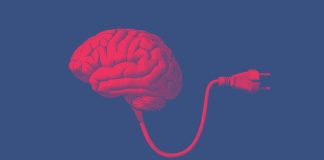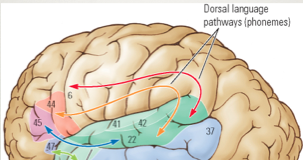Tag: neuroscience
Our native language affects brain wiring
Scientists in Leipzig, Germany have found evidence that...
New Key to Fluctuating Language Ability?
For years, the brain has been thought of as a biological computer that processes information through traditional circuits, whereby data zips straight from one...
We’re Naturally Bilingual
Neuroscientists at New York University have discovered that the brain uses a shared mechanism for combining words from a single language and for combining...
Gestures Can Help Vocabulary Learning
Language educators may find that incorporating gestures or other types of movements in their vocabulary lessons improves learning outcomes, according to a study recently...
Learn a New Language to Boost Brain Activity
A new study, published in Frontiers in Behavioral Neuroscience, shows that studying a new language boosts brain activity, which then reduces as language skills...
What Language Does Pain Speak?
A new study suggests that the language a bilingual person speaks may affect their physical sensations, including pain.
Researchers at the University of Miami tried...
Research Reveals Children’s Linguistic Superpower
Infants and young children have brains with a linguistic superpower, according to Georgetown University Medical Center neuroscientists, who found that unlike adults who use...
Young Bilingual Brains May Age Better
Bilingual children and adolescents may grow up with more grey matter, according to a new study published in Brain Structure and Function, in which...
Language Pathway 20 Million Years Older than Previously Thought
Neuroscientists have discovered that the human language pathway in the brain is at least 25 million years old, pushing back its evolutionary origin by...
Codeswitching Easier to Turn On
Research into the neurological activity required to switch between languages is providing new insights into the nature of bilingualism.
“A remarkable feature of multilingual individuals...












